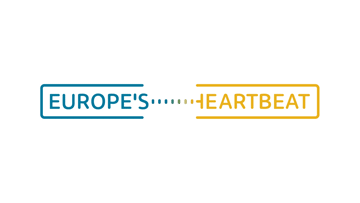With Circular Valley, a central location for the circular economy has been established in Wuppertal. It makes an important contribution to the sustainable transformation of the economy in NRW and has the potential to turn the region into a global hotspot for the circular economy. Initiated by Dr. Carsten Gerhardt, the initiative focuses on close cooperation between companies, science and politics to promote innovative approaches for a circular economy. The Rhine-Ruhr region offers ideal conditions for developing new technologies and business models and putting them into practice.
In an interview with NRW.Global Business, Dr. Carsten Gerhardt talks about the role of Circular Valley as an interface between start-ups and established companies, the global importance of NRW for the circular economy and the long-term prospects for the regional economy.
- What is Circular Valley and what is the idea behind it?
Circular Valley is an initiative and a place. The initiative is driving forward the transformation from a linear to a circular economy. To this end, it connects companies with each other as well as business, politics and science. This allows companies to engage in an unusually close exchange beyond the boundaries of their business premises and to move from planning to action. Circular Valley has developed an accelerator program for young companies, which has already supported more than 100 start-ups from all over the world.
Circular Valley is also involved in the collection and transfer of knowledge, as well as community outreach in areas such as education and culture. All of this makes Circular Valley an ideal location as a development center due to its unique industry, university and research structure. The expanded Rhine-Ruhr region will become the global hotspot of the circular economy, the Silicon Valley of the circular economy.
- What kind of companies/start-ups are you targeting and how can they benefit from Circular Valley's support?
Our Circular Economy Accelerator is aimed at young companies whose business model is making major progress in an area of the circular economy. This refers to all points along the material cycle: from the development of new raw materials and materials to production processes and software/AI programs that make material flows transparent, through to mechanical and chemical recycling. An important criterion here is that the start-ups' ideas are suitable for avoiding emissions in the order of billions of tons.
In Circular Valley, start-ups develop their business models through world-class coaches and mentors, deep insights into the real world, and our network that connects them with potential partners, investors, and sponsors.
- In what specific ways can NRW benefit from Circular Valley? What impetus for the sustainable transformation of the economy does your initiative provide?
North Rhine-Westphalia can become the center of the Fifth Industrial Revolution. The importance of the circular economy was recognized here earlier than elsewhere and was promoted immediately. The companies in our network are more advanced than others when it comes to circular thinking and action, and are pioneers in their sectors. They are creating the jobs of the future, as are the Circular Valley start-ups that are emerging here.
Circular Valley's various event formats play a key role in sustainable transformation: The Partner Talk enables confidential exchange across company boundaries. The Circular Valley Forum is the big annual meeting of the circular economy, showcasing the latest developments and providing strong impetus for the next twelve months. And from 2025, the Circular Valley Convention in Düsseldorf will be the trade show where ideas and technologies for the transformation will be presented.
- Can you give us examples of successful projects that have been accelerated or created by Circular Valley?
Circular Valley has facilitated the first cross-border cooperation in the circular economy: North Rhine-Westphalia and Flanders signed a Memorandum of Understanding at the Circular Valley Forum in November 2023. This agreement was then immediately filled with life. Cooperation will take place in the chemical industry, batteries and building materials. More than ten companies are directly involved in all three areas. We have also developed similar projects with numerous corporate partners in three other areas: Circular Car (for car manufacturers and suppliers), Water and Chemical Recycling. Circular Valley has also brought together established companies and start-ups. Examples include Bayer and Bioweg, Huehoco and Carbonauten, Knipex and Plastic Fischer.
- What challenges do you see for the future of the circular economy and how is Circular Valley addressing them?
I see two main challenges: Regulation and financing. The circular economy needs guidelines and targets from the legislator that also leave enough room for development. The National Circular Economy Strategy is a good example of this. We are very grateful that the topic as a whole is being promoted in this way and that reliable targets have been formulated. At the same time, we expect this strategy to be open to further developments in the market. I am thinking, for example, of reverse logistics, chemical recycling and international cooperation. That is why we are bringing companies together and driving implementation in these areas in particular. Circular Valley's motto is "Grow the Economy - Protect the Environment. The circular economy offers enormous growth potential and opens up entirely new business areas. With our formats and public relations work, we demonstrate these enormous opportunities to investors and companies. Government supporters and courageous pioneers are needed, especially for the start-up and initial growth phases, to make prototypes and the first marketable products possible and visible. Such financial impetus for major developments also comes from our network.


